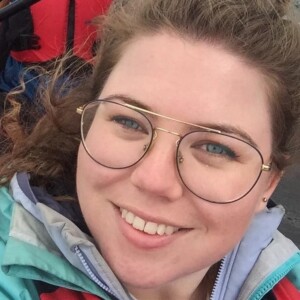
Maria Wagner Jørgensen
University of Birmingham
Project
Assessing the Global Impact of Island Bird Extinctions
Supervisors
- Dr. Tom Matthews, University of Birmingham
- Dr. Laura Graham, University of Birmingham
- Professor Jon Sadler, University of Birmingham
- Dr. Tom Martin, Operation Wallecea
- Dr Ferran Sayol, University College London
- Associate Professor Michael Borregaard, University of Copenhagen
PhD Summary
We are currently witnessing a global biodiversity crisis with significant species declines and an extinction rate far above the historically observed values. Although islands are responsible for only a small part of global terrestrial area, they are hosts to a great amount of global biodiversity; however, island species are currently experiencing a disproportionate number of extinctions and species decline. Using species functional traits, such as mass, tail-length, beak-length, feeding guild etc. of island communities, I aim to assess impacts and patterns in island extinctions: this involves exploring whether specific traits elevate the risk of extinction and investigating the consequences of species loss for healthy functioning of island ecosystems. A better understanding of the mechanisms involved in species loss can inform policymakers and provide essential information for conservation efforts. This can potentially result in better protection of crucial island ecosystems and global biodiversity.
Previous activity
I started my academic journey back in 2014 with an undergraduate degree in Biology at University of Copenhagen. With a general focus on ecology, my final thesis researched the potential synergistic effects of herbicides and ocean acidification on coral health. In 2021, I finished my master’s degree in Ecology and Evolution. Here, I specialised in Macroecology, and my master’s thesis research focused on the role of species functional traits in the interaction between native and introduced bird species on islands.
Additionally, I have spent much of the last 5 years founding and running the Danish NGO, Project OOH (Os Om Havet in Danish). Project OOH is an environmental organisation started in order to create awareness of the obstacles facing our oceans (pollution, climate change, over-exploitation, etc.) through positive experiences in nature. This is done through clean-up events, lectures, and different conservation/restoration projects. This year we planted more than 10,000 eelgrass shoots with the help of our volunteers and in corporation with University of Southern Denmark and Vejle Municipality.
Why did you choose doctoral research?
I have always liked a challenge, and I thoroughly enjoy learning and developing new skills. Through a Doctorial Studentship I will be able to continuously challenge myself and advance my abilities, both personally and academically. Additionally, I enjoy the independent nature and demand for focus that is required while doing a Ph.D., and I am looking forward to diving deep into my study subject. Lastly, I am (perhaps naively) hoping that my research can play a small part in advancing our understanding of the world and promote a more sustainable future.
Why did you choose CENTA?
This studentship provided an opportunity to work within my field of interest, with a high level of independence, and with a large group of highly accomplished supervisors and partners. Furthermore, the general focus of the programme: aiming to advance our scientific, general, and transferable skills (such as presentation, communication, etc.) will challenge me to work on multiple aspects of my skill
Future plans
I am currently planning for a future within academia, but my main goal is to find a position where I feel like I make a difference. Developing a well-rounded set of skills along with creating an international network will hopefully allow me to find an attractive position in the future.
